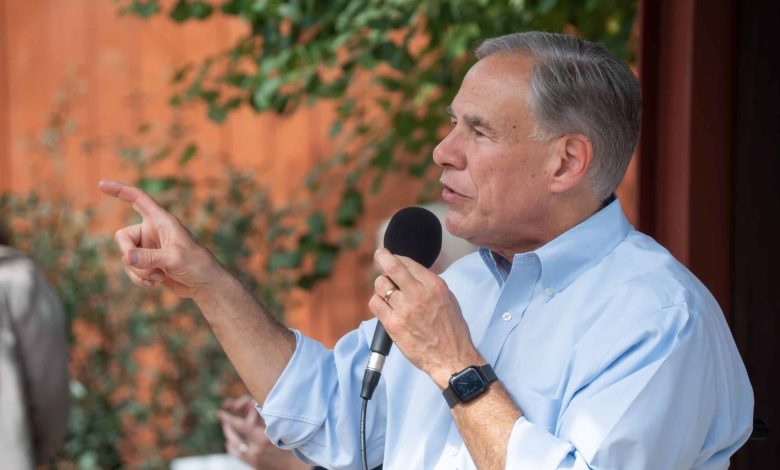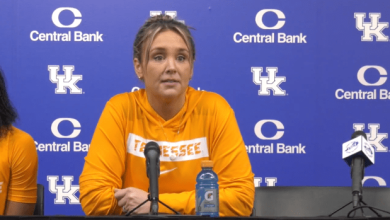Governor Vetoes Controversial Hemp Regulation Bill in Texas AUSTIN, TX — On June 22, 2025, Texas Governor Greg Abbott officially vetoed Senate Bill SB3, a proposed law that sought to impose new regulations on hemp-derived products, including consumable hemp and cannabinoids.

AUSTIN, TX — On June 22, 2025, Governor Greg Abbott sent shockwaves through the Texas political and agricultural landscape when he officially vetoed Senate Bill 3 (SB3), a highly debated piece of legislation aimed at imposing strict new regulations on hemp-derived products across the Lone Star State. The bill, which passed through both chambers of the Texas Legislature with a mix of bipartisan support and opposition, targeted the booming hemp industry and was widely seen as an effort to curb the sale of popular cannabinoids like delta-8 and delta-9 THC.
Governor Abbott’s veto, announced via an evening press release and later elaborated upon in a prepared statement, immediately drew strong reactions from advocates, lawmakers, health officials, and business leaders across Texas. The decision effectively halts—for now—what would have been one of the most restrictive regulatory frameworks on hemp in the country.
Senate Bill 3, authored by State Senator Charles Perry (R-Lubbock), proposed sweeping changes to Texas’ hemp laws. Chief among its provisions was a ban on the manufacture, distribution, and sale of consumable hemp products containing synthetic or semi-synthetic cannabinoids—an umbrella that includes popular products like delta-8, delta-10, and THC-O. These compounds, often found in vape cartridges, edibles, tinctures, and beverages, have become a cornerstone of the Texas hemp retail economy since the state legalized hemp production in 2019.
The bill also sought to limit THC content in all hemp-derived consumables to a strict 0.3% threshold on a dry-weight basis, eliminate certain formulations deemed intoxicating, and impose new licensing and testing standards for hemp processors and sellers. Retailers would have faced significant fines or license revocation for non-compliance.
Supporters of the bill argued it was necessary to protect public health and close loopholes in current law that have allowed the proliferation of intoxicating hemp products, especially among minors. “We’re not banning hemp,” Senator Perry said in a floor debate. “We’re drawing a clear line between what’s legal and what’s not when it comes to intoxication and youth access.”
Governor Abbott’s veto message framed the decision as a rejection of overregulation and a defense of small businesses, farmers, and personal liberty.
“While I share concerns about underage access and unregulated products,” the governor wrote, “SB3 goes too far in limiting a legal agricultural industry that has flourished under a carefully constructed regulatory framework. Rather than enforce a de facto ban, we should invest in targeted enforcement and testing to protect public safety without destroying a growing sector of the Texas economy.”
Abbott acknowledged that some hemp products are indeed intoxicating but emphasized that enforcement and consumer education—not outright bans—are the better solution. His office indicated that future legislation should “balance safety with innovation and economic growth,” and he called on lawmakers to return with “more narrowly tailored reforms.”
Insiders suggest that the governor was lobbied hard by a coalition of hemp businesses, libertarian advocacy groups, and even some members of the Texas GOP who warned that SB3 could devastate rural economies and lead to massive job losses.
The Texas hemp industry, which has grown exponentially since 2019, reacted with near-universal relief and jubilation to the veto. Business owners held celebratory press conferences, social media campaigns lit up with “#ThankYouAbbott,” and several advocacy organizations issued public thank-you letters.
“Today is a victory for reason, science, and the free market,” said Sarah Chambers, executive director of the Texas Hemp Coalition. “SB3 would have wiped out hundreds of small businesses overnight. We are grateful that Governor Abbott chose facts over fear and stood with Texas entrepreneurs.”
Chambers added that while the industry supports child-safe packaging and proper labeling, it “cannot and will not survive under laws that ban 80% of its current products.”
Many retailers, especially those in rural and conservative-leaning areas of Texas, said the veto was a lifeline. In towns like Amarillo, Nacogdoches, and Brenham, hemp stores have provided one of the few growth sectors post-pandemic, generating tax revenue, employment, and economic diversity.
“Governor Abbott saved my store,” said Justin Lopez, a hemp dispensary owner in East Texas. “We employ 12 people, pay our taxes, and follow the rules. That bill would’ve destroyed everything we built. Today, we can breathe again.”
Not everyone was pleased with the governor’s decision. Several lawmakers, including co-sponsors of SB3, expressed disappointment and vowed to reintroduce similar measures in the 2027 legislative session.
Lieutenant Governor Dan Patrick, who previously championed SB3 as a necessary step toward public safety, issued a statement calling Abbott’s veto “deeply concerning.” Patrick’s office signaled that he would explore executive or administrative options for limiting access to what he called “dangerously underregulated substances.”
The Texas Department of State Health Services (DSHS), which regulates hemp products, issued a neutral response, saying it would “continue to enforce existing rules and await further legislative guidance.”
Some parents’ groups and health advocates were more critical. The Texas Parents for Youth Safety coalition issued a strongly worded statement blaming Abbott for “prioritizing profit over protection” and claiming that the veto would lead to more underage use and ER visits linked to hemp products.
Medical professionals are split. Some argue that the effects of intoxicating hemp products are too poorly understood and require more oversight. Others say the products, when properly labeled and sold to adults, are relatively safe and far less harmful than alcohol or tobacco.
Abbott’s veto could have ripple effects nationwide. Texas is one of the largest hemp markets in the U.S., and many other states have been watching the legislative process closely. States like Florida, Tennessee, and North Carolina are engaged in similar debates over hemp-derived cannabinoids.
“This veto signals that there’s political danger in overregulating hemp,” said Dr. Heather Cross, a legal scholar specializing in cannabis law at the University of Houston. “It may encourage lawmakers in other states to think twice before banning products that are popular with voters and valuable to rural economies.”
Meanwhile, federal guidance remains vague. The 2018 Farm Bill legalized industrial hemp, but enforcement and regulation of cannabinoids like delta-8 have been left largely to the states. That has resulted in a patchwork of laws and confusion among consumers and businesses.
The veto leaves the status quo in place—for now. Delta-8 and other hemp-derived cannabinoids remain legal under current Texas law, as long as they meet labeling and testing requirements and stay below the 0.3% THC threshold by dry weight.
But the debate is far from over. Lawmakers are expected to reconvene in 2026 to revisit hemp regulation. Governor Abbott himself acknowledged in his veto message that a more narrowly focused bill addressing youth access, product safety, and enforcement gaps “would merit serious consideration.”
In the meantime, the Texas hemp industry is preparing for a regulatory arms race, doubling down on self-policing, public relations, and consumer education.
“We know we’re under the microscope,” said Malik Carter, CEO of GreenGold Botanicals in Austin. “Now is the time to prove that we can operate safely, responsibly, and transparently. If we blow this chance, they’ll come back swinging.”
Governor Greg Abbott’s veto of SB3 is a landmark decision that underscores the complexity of regulating new and rapidly evolving sectors like hemp. Balancing public safety with economic opportunity, personal freedom with regulatory responsibility, will continue to challenge lawmakers across party lines.
For now, Texas’ hemp industry has avoided what many saw as an existential threat. But the battle over cannabinoids is far from settled—and the next round may be even more contentious.









